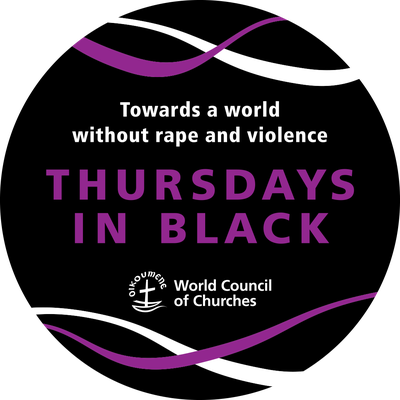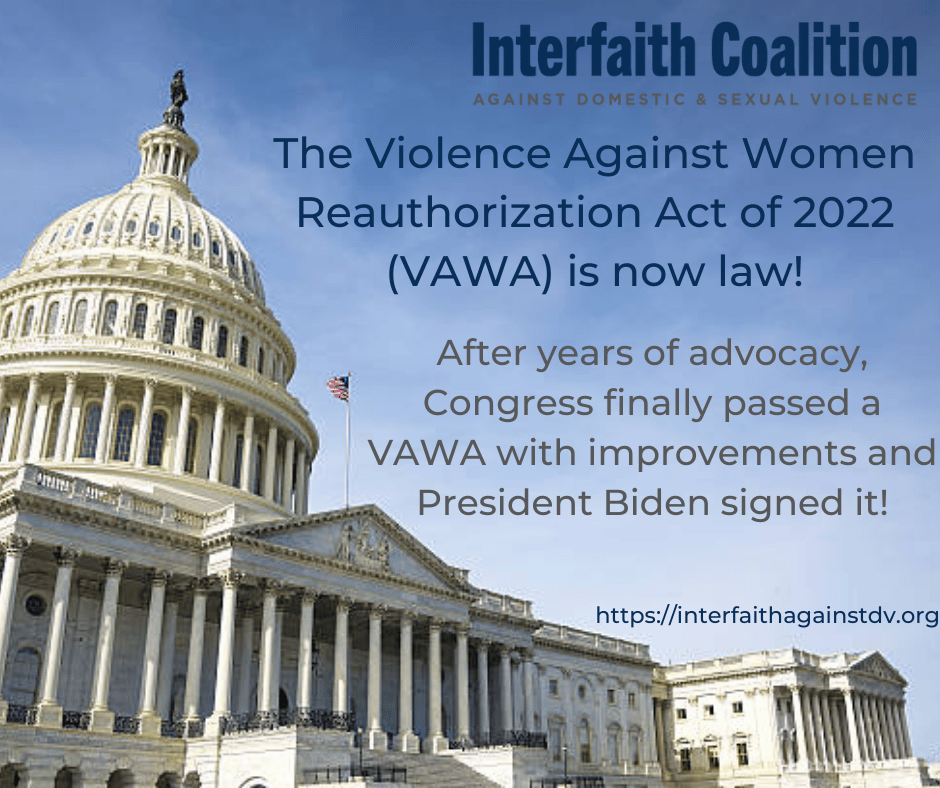Sexual, Domestic, and Gender-Based Violence
The church must be a safe place for victims of sexual and gender-based violence to share their stories and seek support. It is our responsibility to help end domestic violence. Even if we do not know their faces, victims and batterers alike sit in our pews and worship within our walls. Whether we want to be or not, the Church is at the front lines of this issue.
Learn more about how you can be a support and an advocate for the people in your congregation and community.

“…the Fourteenth General Synod calls upon its clergy, laity and seminarians to educate themselves and others on issues of violence against women, to be advocates for equality between women and men, and to work for the elimination of violence against women.”
The Pronouncement on Violence in Relation to Women, General Synod 14
Ways to Witness Against Sexual and Gender-Based Violence:
Thursdays in Black
The campaign is simple but profound. Wear black on Thursdays. Wear a pin to declare you are part of the global movement resisting attitudes and practices that permit rape and violence. Show your respect for women who are resilient in the face of injustice and violence. Encourage others to join you. Learn more about the Thursdays in Black campaign here.
Break the Silence Sunday
Break the Silence Sunday is a time for the church to learn together about the realities of rape and sexual violence; about ways to create a community where survivors can share their stories and receive support, hope, and love; and to prayerfully consider ways in which they can be advocates for change in their communities, and around the world. Learn more and download resources.
Speak Out Sunday
As part of Domestic Violence Awareness Month, Speak Out Sabbath is an interfaith advocacy weekend coordinated by the We Will Speak Out Coalition. Clergy are encouraged to engage in speaking out against sexual and gender-based violence in an intentional and faithful way during worship with their congregations. Worship resources, sermon starters, litanies, and children’s resources are updated and added daily. Learn more.
Take Action
In March of 2022, the Violence Against Women Act Reauthorization Act of 2022 was signed into law. The Violence Against Women Act (VAWA), first passed in 1994, was enacted to ensure protection against domestic and sexual violence, and abuse. It established a federal framework to coordinate federal and community-based responses for victims of domestic and dating violence, sexual assault, and stalking. UCC members and congregations invested years of advocacy to supporting this legislation.
While we celebrate the reauthorization of VAWA, we also recognize that there is much more to be done to address sexual, domestic, and gender based violence. Some examples are stronger gun safety legislation (women are 5X more likely to be killed if their abuser has access to a gun), or defending access to comprehensive reproductive healthcare for all people who can become pregnant.
Be a Resource in Your Community
- If you or someone you know is in an abusive relationship, please seek help immediately. You can call the 24-hour National Domestic Violence Hotline at 1-800-799-SAFE (7233).
- National Dating Abuse Helpline: Call 1-866-331-9474 or text “loveis” to 22522.
- GLBT National Help Center: 1-888-843-4564 and 1-800-246-PRIDE (national youth talk line)
Teen Dating Violence Awareness
Our religious heritage compels and guides us in creating a safe environment where people can come to understand and respond to the challenges facing them as sexual beings. Here are some resources geared toward teens for health sexuality education and anti-violence awareness and training:
- Our Whole Lives, Resources for Grades 7-9 – activities, perspectives, language, and resources that will help today’s young teens make informed and responsible decisions about their sexual health and behavior by providing accurate, age-appropriate information. Topics include: bullying and bystander responsibilities; sexuality, social media, and the Internet; body image; consent education; and communicating with a sexual partner.
- Commentary: Let’s talk about sex…and consent by Rev. Amy Johnson, UCC Minister for Sexuality Education and Justice.
- Commentary: Scary stats: Teen breakups and domestic violence by Rev. Amy Johnson, UCC Minister for Sexuality Education and Justice.
- Break the Cycle has some excellent resources for empowering youth to end DV. Their mission is to inspire and support young people to build healthy relationships and create a culture without abuse.
- Love Is Respect – Teens can text “LOVEIS” to 22522 or call 1-866-331-9474 to chat with a trained peer advocate and get more info.
Why does the United Church of Christ Work on sexual and gender-based violence?
We are people of the New Covenant: Jesus’ teachings call us to oppose violence and abuse at all levels of our life. His attitude toward women and children was one of compassion and caring, and his outrage at the abuse he saw in the Temple surely parallels our outrage at violence against the most sacred of temples, the human person.
We are called by our Baptism to respond to that abuse, for by Baptism, we are One in the body of Christ. When any member of that body is abused or violated, the whole of Christ’s body is injured. As members of that body, we are called to seek justice, but not revenge, to righteous anger, but not blind rage. We are called to works of compassion, justice, and mercy; we are called to pastoral and prophetic ministries in response to victims of violence. We are called as a Church to be a sanctuary for those who are abused.
Jesus foreshadowed this ministry in his story of the Good Samaritan, who cared for one victimized by the violence of his society. Among us today the victims of violence and abuse lie by the side of the road: beaten, humiliated, bruised, and exploited. Too often the Church, like the Priest and the Levite of the Gospel story, has passed by on the other side. We are called to be the Samaritan – to support, shelter, love, and heal those who are victims of violence (The Pronouncement On Violence In Relation To Women, General Synod 14).
Read and Share
- Encounters at the Well Blog, designed to provide the space for voices and perspectives in our community to tell the stories that will bring about change in our world and break the cycles and silence of gender-based violence which transcends gender binary constructs.
- Domestic Violence: The Shadow Pandemic, commentary by Rebekah Choate, Global Advocacy and Education Associate for Global Ministries
- Forgiveness and Domestic Violence: A sermon by Amber Neuroth, a UCC pastor in Virginia.
- Jesus, Priest and Victim: A Litany for UCC Domestic Violence Awareness Month by UCC Rev. Aleese Moore-Orbih
- Worship Resources to End Domestic Violence from the World Council of Churches

Get Involved. Answer the Call to Action.
Questions? Contact UCC.
Jessica Quinn
Online Communications Specialist
UCCTakeAction@ucc.org
